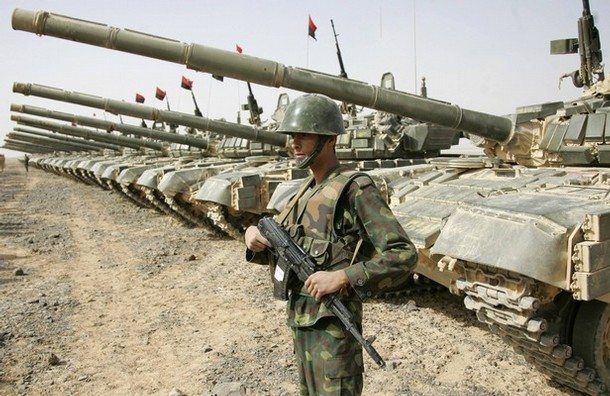Yemen is not currently a failed state, but it is experiencing huge political and economic problems that can have a direct impact on U.S. interests in the region. It has a rapidly expanding population with a resource base that is limited and already leaves much of the current population in poverty. The government obtains around a third of its budget revenue from sales of its limited and declining oil stocks, which most economists state will be exhausted by 2017. Yemen has critical water shortages aggravated by the use of extensive amounts of water and agricultural land for production of the shrub qat, which is chewed for stimulant and other effects but has no nutritional value. All of these problems are especially difficult to address because the central government has only limited capacity to extend its influence into tribal areas beyond the capital and major cities. Adding to these difficulties, Yemen is also facing a variety of interrelated national security problems that have strained the limited resources of the government, military, and security forces. In Sa’ada province in Yemen’s northern mountainous region, there has been an intermittent rebellion by Houthi tribesmen who accuse the government of discrimination and other actions against their Zaydi Shi’ite religious sect. In southern Yemen, a powerful independence movement has developed which is mostly nonviolent but is also deeply angry and increasingly confrontational.
A key country that must be considered in formulating Yemen policy is Saudi Arabia. Riyadh is Yemen’s chief aid donor and often considers itself to have a special relationship with Yemen that affords it an elevated and privileged role in providing external guidance to Sana’a. Some observers suggest that Saudi Arabia views this role as so important that challenging Saudi interests in Yemen is sometimes viewed as equally offensive as interfering in Saudi domestic politics. Riyadh has become especially sensitive about Yemen issues in recent years and even intervened militarily on the side of the Yemeni government in the most recent phase of the Houthi war in Sa’ada province. The Saudis are also deeply involved with Yemen in the struggle against al-Qaeda due in part to a 2009 merger of the Saudi and Yemeni branches of this organization. The merger occurred following the decision of Saudi al-Qaeda members to flee to Yemen to rebuild their battered organization. Saudi Arabia’s special relationship with Yemen can both help and hinder U.S. objectives for that country.
Additionally, Yemen’s government has waged a struggle against al-Qaeda with vacillating levels of intensity since at least 2001 when its leadership chose to cooperate with the United States on counterterrorism concerns in the aftermath of the September 11, 2001, strikes. More recently, Yemen has emerged as one of the most important theaters for the struggle against alQaeda, as many members of this organization attempt to regroup and reorganize themselves in Yemen after suffering crippling setbacks in Saudi Arabia, Pakistan, and Afghanistan. The loss of Yemen to al-Qaeda would be particularly damaging to Western interests due to its strategic location and a population which is expected to exceed half of that of the entire Arabian Peninsula within the next 20 years. Moreover, al-Qaeda in the Arabian Peninsula (AQAP), headquartered in Yemen, appears to be strengthening and showing signs of transitioning from a terrorist group with limited capabilities to an emerging insurgent movement.
Yemen is also an especially distrustful and wary nation in its relationship with Western nations, and particularly the United States. Most Yemenis are fiercely protective of their country’s independence from outside influence, especially from countries that they believe do not always have the best interests of the Arab World in mind. While Yemen’s government is coming to understand the dangers it faces from al-Qaeda, the struggle against this organization is not always popular among the Yemeni public, and any large-scale U.S. military presence in the country could easily ignite these passions and destabilize the regime. Under such circumstances, it is important to help Yemen, but to do so in ways that are not viewed as intrusive or dominating by a population that does not always identify with U.S. concerns about international terrorism. In recent years, U.S. policymakers have managed to maintain this balance, but the complexities of Yemeni domestic politics will continue to require subtlety and nimbleness in U.S.-Yemeni security relations.
Introduction
The United States is currently deeply concerned with the need to contain and defeat al-Qaeda forces in Yemen. Nevertheless, it seems impossible to formulate a meaningful strategy to meet this objective without carefully considering a variety of other important factors which have come to dominate Yemeni politics. These factors include a crippled and declining economy, as well as recurring problems with national unity. Currently, Yemen faces simmering unrest in the north that sometimes leads to revolt among Houthi tribesmen and a strong but mostly nonviolent secessionist movement in the south. Under these conditions, U.S. policy must be informed by a deep understanding of both Yemen’s domestic politics and current Yemeni government capacity to enforce its laws and maintain internal security. U.S. policy formulations must also be based on a solid understanding of the constraints that influence Yemen’s leadership, especially the nuances of Yemen’s relations with its most influential neighbor, Saudi Arabia, and the views of the Yemeni public on both al-Qaeda and U.S. objectives in the region.
The tasks associated with developing and implementing effective policy for Yemen are challenging. Yemen is remote from the United States and has traditionally generated little interest in Washington. Until recently, it has seldom been linked to important U.S. national interests. Moreover, Yemeni values and attitudes have been formed within a very different type of society than those of the West. The potential for distrust, misunderstanding, and miscommunication is therefore strong, although the importance of the U.SYemeni relationship has seldom been greater, due to a variety of factors including the rise of al-Qaeda in that country. Fortunately, while Yemeni society and politics are complex, they are also comprehensible. Moreover, well-informed U.S. planning efforts to help Yemen and ensure stability in the Arabian Peninsula are clearly possible.
This work hopes to provide an overview of many of the most important issues that must be considered when addressing Yemen policy, as well as suggesting possible approaches to obtaining important U.S. and Yemeni goals in the region. It is hoped that the reader will find this work useful in understanding and untangling many of the complexities of the Yemeni political, economic, and international situations that touch upon key U.S. and Western interests.
Conclusion and Recommendations
The problems in Yemen defy easy answers and are often viewed as so overwhelming that they can be approached only in a tentative, trial-and-error manner. The United States must therefore remain aware of the potential for the situation to get worse in Yemen before it gets better. Moreover, Yemen’s security difficulties are so interrelated that it is difficult to solve the al-Qaeda problem in any fundamental way without some progress in managing the other difficulties in Yemen. President Obama’s statement that he has “no intention” of sending troops to Yemen is reassuring to most Yemenis and indicates reasonable concern over the danger of falling into a significant military intervention. Such an intervention would consume U.S. lives and resources and could only make the security situation in the region increasingly unstable. This set of problems does not require the United States to remain aloof from Yemen’s problems. Rather, it suggests that Washington’s involvement in Yemen must be structured in ways that the political culture will accept. Unfortunately, for the time being the United States may have to focus on helping Yemen contain or manage problems rather than solve them.
The difficulties associated with managing Yemen policy should nevertheless not be allowed to obfuscate the high stakes of the current situation in Yemen. There are important reasons for defeating al-Qaeda in Yemen, even if this does not destroy the organization and instead leads it to move operations to more hospitable sanctuaries in remote parts of the world. Yemen is central in the struggle against al-Qaeda due to its key strategic location, including a 700-mile border with Saudi Arabia. It also dominates one of the region’s key waterways, the Bab al-Mandeb strait, which controls access to the southern Red Sea. Furthermore, the problem of Yemen-based terrorism remains an important international threat which cannot be ignored. The U.S. leadership may have narrowly escaped unmanageable domestic pressure for an additional war in the Middle East when the Christmas bomber plot was thwarted in late 2009. If this incompetent enemy had actually been able to detonate his explosives, the call for a hard-line military response would have been difficult to resist. Yet, an actual invasion of Yemen would have produced a vicious indigenous response that would have been difficult to contain. Moreover, any effort to rebuild, modernize, and democratize Yemen in the aftermath of such an intervention would make the problems of Afghanistan and Iraq look simple by comparison. While paying special attention to Yemeni sensitivities about foreign influence, the United States must do what it can to prevent Yemen from falling into a cauldron of radicalism before the subject of intervention even arises.
The Yemeni political system is likely to remain unstable, and the economic system is likely to remain impoverished, for the foreseeable future. Central governmental authority in the hinterland can be expected to remain limited for the foreseeable future. It is also possible that the country could collapse into anarchy over the next decade or so as the current problems continue to intensify. Helping Yemen manage these problems will be difficult since a constant distrust of U.S. actions is always present in Yemeni politics. Within this especially difficult milieu, this report makes the following recommendations.
[Download not found]











